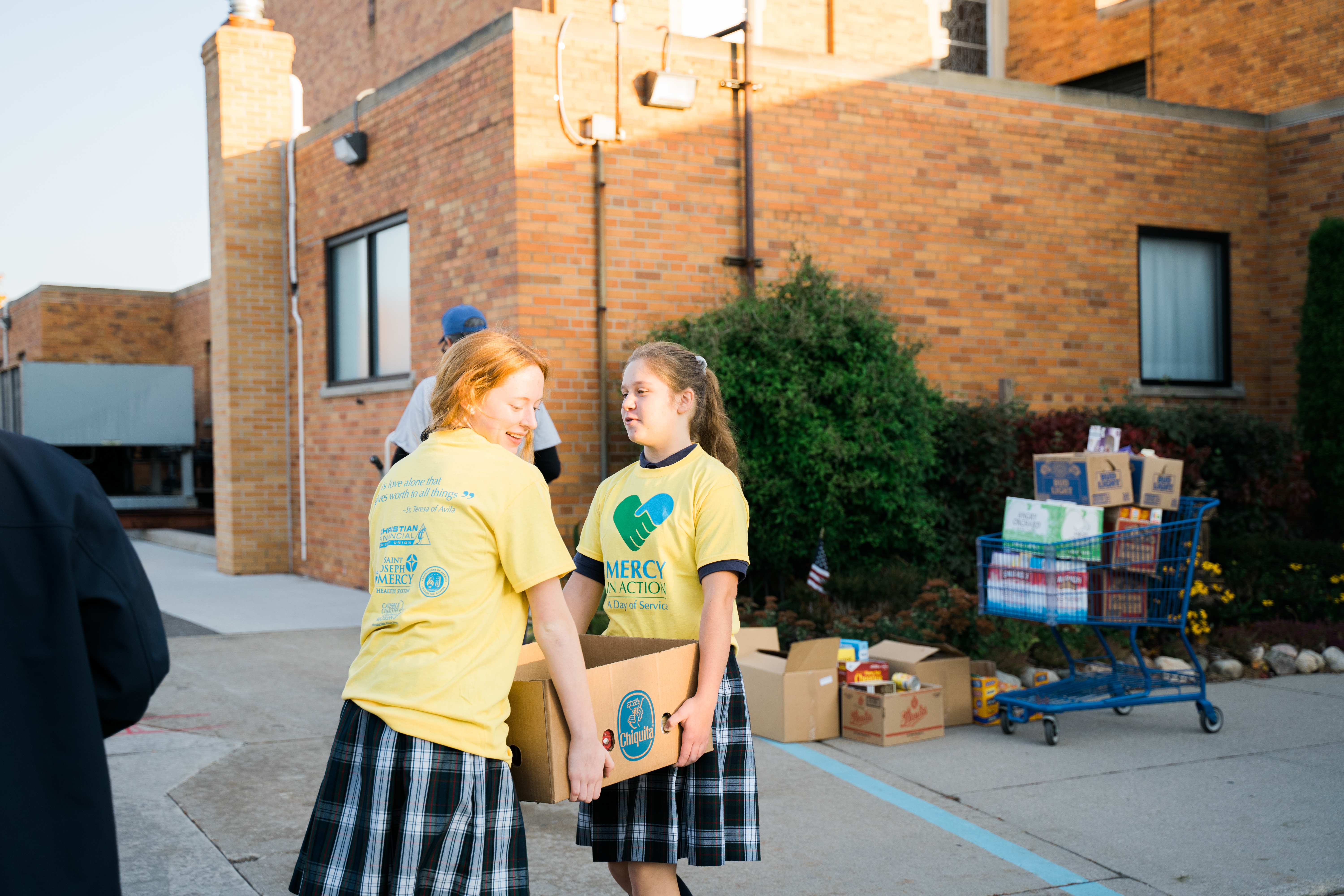Program meant to help economy didn’t exclude religious organizations, allowing them to continue providing vital services
DETROIT — About 100 Catholic parishes, schools and organizations in southeast Michigan received assistance through the federal Payroll Protection Program, a provision of the Coronavirus Aid, Relief and Economic Security (CARES) Act designed to assist workers and small employers, including nonprofits, during the height of the COVID-19 crisis.
The Small Business Administration, which facilitated the loans, released a list of organizations — including both for-profit and nonprofit — that received aid July 6.
Along with the Archdiocese of Detroit itself, which applied for and received a loan, the funding made it possible for Catholic parishes and schools to mitigate the number of jobs lost during the sharpest rise in unemployment since the Great Depression, said Jeff Wagoner, chief financial officer for the archdiocese.
Parishes, schools and nonprofits with fewer than 500 employees were among those who took advantage of the program, which provided forgivable loans if certain conditions — such as spending a certain percentage on payroll expenses — were met.
Overall, the PPP funding helped Catholic organizations in southeast Michigan support employment for an estimated 1,100 laypeople who provide for their families and contribute to their communities, Wagoner said.
“We are so grateful that these loans made it possible for the archdiocese and many of our parishes to support employment for hundreds of employees, including office managers who maintained the essential day-to-day operation of our parishes, program managers who kept food pantries open, and teachers who developed and implemented distance learning for thousands of students,” Wagoner said.

“The purpose of the PPP has always been to keep workers paid and employed, because during an economic crisis of this size, every job lost hurts the economy while every job saved is a step in the right direction and has a positive impact on our entire community,” Wagoner added.
From their record highs in mid-April, the unemployment numbers have fallen in most states, including Michigan. The PPP is believed to have favorably contributed to this trend.
Because the Payroll Protection Program was designed to prevent economic catastrophe, not to promote or endorse any particular organization, religious organizations were eligible to apply for the funding, Joseph Eisenhauer, Ph.D., dean of the College of Business Administration at the University of Detroit Mercy, told Detroit Catholic.
“The plan was to help employees remain employed by keeping organizations operable. Whether that’s a faith-based or non-faith-based organization, economically it doesn’t matter,” Eisenhauer said.
For example, St. Michael the Archangel Parish in Livonia, which employs 84 people, was able to quickly bring back several workers who had been initially laid off at the start of the pandemic, said Msgr. William Tindall, St. Michael’s pastor.

“We were very grateful that religious organizations were not kept out of this,” Msgr. Tindall said. “When folks get laid off, they’re afraid they’re not going to get called back. We called our people back as soon as this loan came through. It gave people some hope to look forward to.”
Aside from keeping people employed, Catholic parishes and schools were also able to continue providing vitally needed community services during the pandemic, including soup kitchens and food pantries that provided a lifeline to struggling families.
Some of the employees who were retained at St. Michael helped staff the parish’s food outreach program, Msgr. Tindall said, while others worked to maintain the parish’s school building as teachers heroically navigated online education.
“A few of these folks were essential employees and we really needed them on site, so it was very important that they came back to work,” Msgr. Tindall said.
As the coronavirus outbreak swept across Michigan, St. Michael and other parishes suspended public Masses to prevent community spread, which resulted in parishes taking a significant hit to their Sunday collections through no fault of their own, said Paul Long, president and CEO of the Michigan Catholic Conference.
“The Church did what it did for the common good of everyone’s health and wellbeing in the state of Michigan,” Long said. “Just so, for the common good of everyone in our economy, the (PPP) program was developed to help employers pay their employees during a time when government was asking everyone to shut down.”
All seven Michigan dioceses applied for and received funding, which saved thousands of jobs throughout the state, Long told Detroit Catholic.
“Just looking at the numbers, the fact that the Church employs in excess of 15,000 people throughout the state of Michigan in our diocesan offices, our parishes, our schools and our Catholic charities, this program went a long way toward ensuring those households, those families were taken care of,” Long said.
“In times of economic need, and even in times of economic wellbeing, the Church is always there to help those who aren’t doing as well as others, those at the lower end of the economic spectrum,” Long added.










